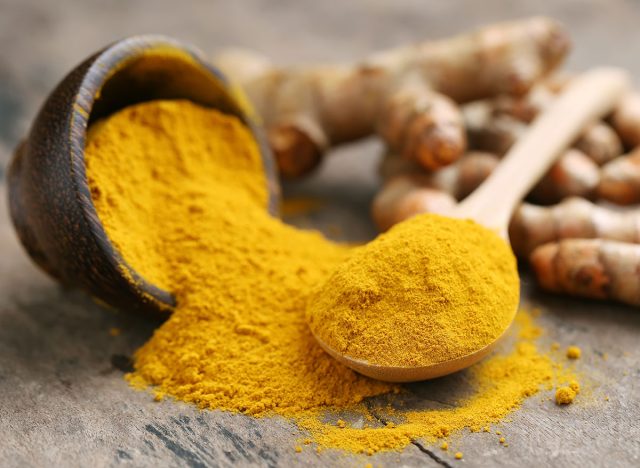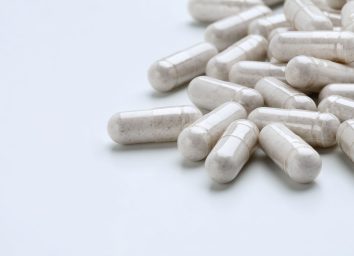The #1 Supplement to Reduce Dementia Risk, Nutritional Psychiatrist Says

If you could make a simple lifestyle change to reduce your risk of developing dementia, would you do it?
Surveys show that more than half of people are very afraid of a dementia or Alzheimer’s disease diagnosis, suggesting that there may be strong motivation to do so. In the United Kingdom, a study on dementia worry by the Alzheimer’s Society found that 62% of people think a diagnosis means “life is over.” Similarly, in the United States, surveys show a 31% uptick in fear of getting dementia and that 66% of respondents are at least somewhat concerned about providing care for a loved one with dementia.
Improving brain health is a popular topic among Eatthis.com readers, so we sought out the advice of a Harvard-trained nutritional psychiatrist and biologist, an expert on how nutrition impacts the brain. Uma Naidoo, MD, is the director of nutritional and lifestyle psychiatry at Massachusetts General Hospital and author of the national and international bestseller: This is Your Brain on Food. She’s also a professional chef who believes eating a whole-food, plant-based diet is the best approach to nutrition for brain health. “I first enjoy seeking nutrients in the most delicious ways possible for healthy aging and staving off neurocognitive decline,” says Dr. Naidoo.
Eatthis.com: Got it—whole foods first. But let’s say we don’t eat the healthiest all the time. If you could choose one supplement to take for protection against dementia, what would it be?
Dr. Naidoo: I would optimize turmeric with a pinch of black pepper, or a folate supplement, alongside omega-3 fatty acids. (Omega-3s are found in fish oil supplements and fatty fish.) Where a deficiency of folate may underlie some neurological conditions, improving folate status has beneficial effects on our brain health and cognitive age. Leafy greens, such as spinach, Swiss chard, and dandelion greens are an excellent source of folate, known also as vitamin B9. While turmeric (curcumin) may be taken as a supplement, it is easy to use the dried spice and you only need a small amount, less than a teaspoon daily with a pinch of black pepper*. I find that when people add these nutrients through food, they tend to use them more consistently than taking a supplement.
*(Studies show that piperine in black pepper increased the bioavailability of curcumin’s antioxidant compounds by up to 2000%. For more on curcumin, read Why You Should be Eating Turmeric Right Now.)

Eatthis.com: Are there other dietary supplements that you would suggest readers look into and ask their doctors about?
Dr. Naidoo: Yes, certainly—from the standpoint of nutrients to prioritize when it comes to mental health, seeking out sources of magnesium, vitamin D, and omega-3’s is a great place to start.
Eatthis.com: Do you suggest those because we Americans tend to be deficient in them?
Dr. Naidoo: Yes. Those nutrients can be harder to get through your daily diet, so they are “the low-hanging fruit” for supplementation. Omega-3 fatty acids are particularly useful for the health of the brain and blood vessels. They also lower inflammation, which contributes to their neurocognitive benefits and neuroprotective properties.
While all these supplements may help ensure you get brain health-supporting nutrients, as a nutritional psychiatrist, I believe starting with a varied diet and whole foods approach to including these nutrients in your diet, as you subsequently gain the benefits of fiber, proteins, and antioxidants also present in whole foods. You can even get your omegas from plant foods. For example, Brazil nuts are rich in omega-3s. While there is no Recommended Daily Allowance for omega-3s, the National Institutes of Health recommends an adequate intake of omega-3’s for men is 1.6 grams per day and 1.1 grams daily for women.
In addition to considering these brain-health supplements, avoid The Worst Eating Habits for Your Brain, according to Experts.









